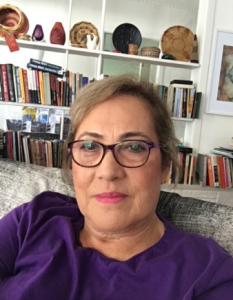The Significance of Land Acknowledgements as a Commentary on Indigenous Pedagogies
by Linda Tuhiwai Smith
In my decades of navigating both the academic institutional world and the world of Indigenous peoples, the emergence of land acknowledgements in academic institutions and in public and government contexts is a fascinating story of how one small element of Indigenous pedagogies has come to be expressed in institutions that have historically reviled Indigenous peoples. Land acknowledgements are often made as statements at important events within institutions. The land acknowledgement can be a “Welcome to Country” greeting by an elder, often given in Australia, or a formalized statement that is read out by a non-Indigenous official at an occasion such as a graduation ceremony. Indigenous pedagogies encompass the worldviews, philosophies, cultures, histories, ways of knowing and being, and practices of diverse Indigenous peoples. Every Indigenous nation and peoples will have their own way of defining, naming, and even thinking about the idea of an Indigenous pedagogy. In my own Māori culture from Aotearoa New Zealand, for example, we have no one word that exactly translates to pedagogy. We do have a word, ako, that means both teaching and learning, and it is from this one word that we get a glimpse into a worldview about the relational nature of knowledge transmission, teaching and learning, teacher and learner. Our pedagogical ideas and practices are deeply connected to our understandings of who we are, where we have been and may come from, why we exist, and what our responsibilities are while we are alive and then beyond our physical lives. It is with that deeper sense of an Indigenous pedagogy that I want to reflect upon the significance of what may seem like the simple act of a land acknowledgement.
It is of course easy to critique the land acknowledgement expressed in institutional settings as a tokenistic and meaningless gesture, an awkward and embarrassing display of institutional arrogance, a show of neoliberal performativity, and a cynical act of cultural appropriation. Yes, I have personally witnessed numerous epic failures to deliver a respectful land acknowledgement, many condescending attempts at land acknowledgement alongside dreadful and demeaning mispronunciation of Indigenous language. Along with my colleagues, I have felt outraged, offended, embarrassed, ashamed, implicated, and bemused. However, I have also witnessed acknowledgements that have brought me to tears, raised me up, exposed me to a different experience, expanded my knowledge, and filled me with hope.
 Linda Tuhiwai Smith, PhD, is a Distinguished Professor at Te Whare Wānanga o Awanuiārangi in Whakatane, New Zealand. She is Māori and from Ngāti Awa, Ngāti Porou, and Tuhourangi. Distinguished Professor Smith is known internationally for her work on decolonising research methodologies, Indigenous education, and kaupapa Māori. She was the founding co-director of Ngā Pae o Te Māramatanga, the Māori Centre of Research Excellence, and has held several senior academic roles at the University of Auckland and Waikato University. She is a fellow of the American Education Research Association, a fellow of the Royal Society of New Zealand, and an honorary international member of the American Academy of Arts and Sciences. Distinguished Professor Smith is a companion of the New Zealand Order of Merit.
Linda Tuhiwai Smith, PhD, is a Distinguished Professor at Te Whare Wānanga o Awanuiārangi in Whakatane, New Zealand. She is Māori and from Ngāti Awa, Ngāti Porou, and Tuhourangi. Distinguished Professor Smith is known internationally for her work on decolonising research methodologies, Indigenous education, and kaupapa Māori. She was the founding co-director of Ngā Pae o Te Māramatanga, the Māori Centre of Research Excellence, and has held several senior academic roles at the University of Auckland and Waikato University. She is a fellow of the American Education Research Association, a fellow of the Royal Society of New Zealand, and an honorary international member of the American Academy of Arts and Sciences. Distinguished Professor Smith is a companion of the New Zealand Order of Merit.